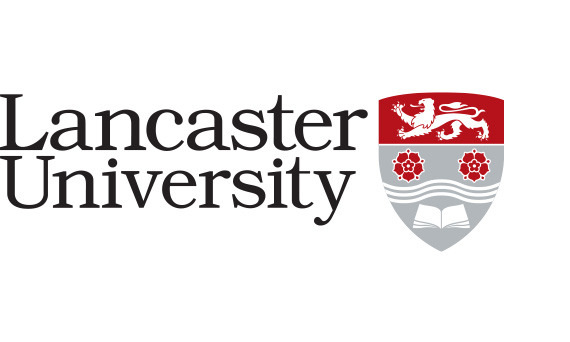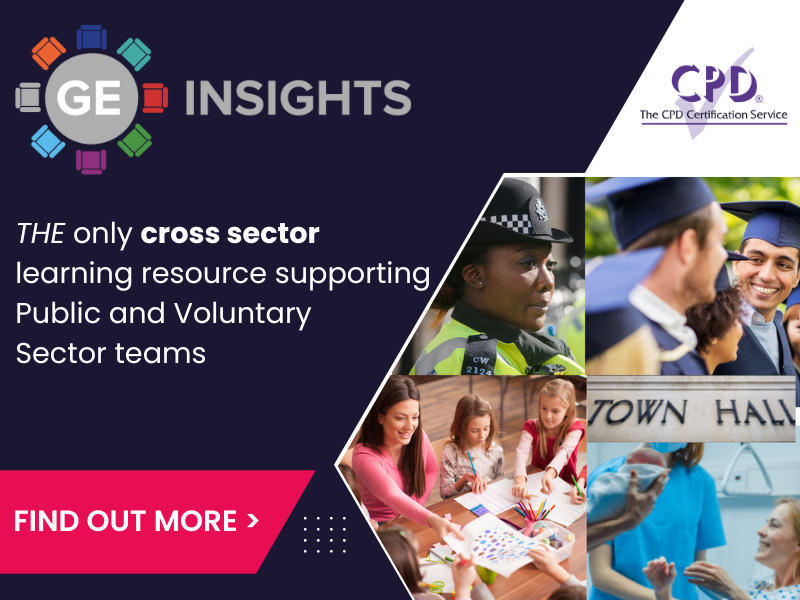- Overview
-
According to the mental health charity Mind, 1 in 6 people experience a common mental health problem every week. In addition, 29% of people cite their work as a source of stress and anxiety, the Mental Health Foundation reported in 2023. HR leaders are therefore feeling increasingly responsible to improve their company culture and provide greater wellbeing support to employees. However, beyond the moral and statutory duties to safeguard workforce mental health, businesses can also hugely benefit from investing in wellbeing. Improved productivity, staff retention and morale are proven to be more common in organisations with higher levels of wellness, as found by the CIPD in 2023. In coming together to share ideas, employers will be better equipped with strategies for boosting mental health at work.
- Approximately 1 in 10 workers report feeling lonely at work (Campaign to End Loneliness, 2023)
- The British Medical Association (BMA) found that 9 out of 10 people who experience mental health problems face stigma and discrimination as a result (2021)
- Organisations investing in workplace wellbeing see a five-fold return on investment (Deloitte, 2022)
Join us at The Mental Health in the Workplace Conference 2024 to hear the latest guidance for strengthening the employer approach to improving workplace wellbeing. High-level keynotes will offer expert insight on transforming company culture and enhancing organisational processes, followed by a range of exemplary case studies. Topics of best practice include achieving senior leader buy-in, championing workplace wellbeing and providing holistic support. An interactive workshop will equip practitioners with methods for adopting a whole-organisation approach to workplace wellness, followed by a breakout networking session with other senior colleagues from a range of sectors.
Why Attend:
✓High-level keynotes from senior leaders in HR and People Management
✓Case studies demonstrating best practice in early-intervention, supporting the mental health of male and menopausal staff, and upskilling management
✓Extended interactive workshop offering practical training in improving workplace wellbeing s
✓Networking with senior colleagues from a range of organisations
✓8 CPD points towards your yearly quotaFor more information or to make a booking please call 0330 058 4285

- Agenda
-
-
Online Registration
-
Chair’s Opening Remarks
Dr Abigail Morris, Lecturer in Workplace Health and Well Being, Lancaster University (CONFIRMED)
-
Keynote: Raising the Profile of Wellbeing to Achieve Whole-Organisation Culture Change
- The Mental Health at Work Commitment: guidance for meeting standards to improve staff wellbeing
- Insights into creating and distributing wellbeing surveys to target resources for wellness interventions and monitor organisational progress
- Designing fulfilling job roles and improving achievement recognition processes for colleagues struggling with wellbeing issues
- Ideas for coaching managers and senior leaders in acting as role models to better promote healthy work/life balance
- Delivering training for line managers on making wellbeing integral to a management approach
Kim Leadbeater MP, Co-Chair, APPG Parliamentary Group on Tackling Loneliness and Connected Communities (CONFIRMED)
-
Keynote: Boosting Workforce Mental Health Through Robust Cultures and Processes
- Latest national statistics in mental health and findings from research into the workplace impact of ill health
- Advice on enhancing protective factors to encourage good mental health at work and mitigating against common forms of risk
- Strategies for identifying staff at increased risk of mental ill health and noticing symptoms of ill health in remote environments
- Methods for reducing inequalities in workplace experiences and tailoring support to minoritised colleagues
- Sharing resources and toolkits to evaluate workplace wellbeing and ideas for boosting morale
Andy Bell, Chief Executive, Centre for Mental Health (CONFIRMED)
-
Questions and Answers
-
Comfort Break
-
Keynote: Strategic Approaches for Strengthening Workplace Wellbeing
- Developing a holistic wellbeing programme that supports the whole person through the employee lifecycle
- Understanding what’s driving health and attendance, and addressing unhealthy working practices like presenteeism
- Making sure mental health and wellbeing interventions are evidence-based and integrated across the organisation
- Ensuring people managers are a strong link in the employee wellbeing chain
Rachel Suff, Senior Policy Advisor, Chartered Institute of Professional Development (CIPD) (CONFIRMED)
-
Case Study: Driving Improvements in Occupational Health and Wellness
- Sharing successful workplace initiatives proven to promote staff health and overall long-term organisational wellness
- Supporting vulnerable staff in times of crisis to manage workloads and alleviate stress
- Developing a line manager wellbeing competencies framework to equip leaders with the skills to handle difficult conversations
- Embedding mental health first aiders within teams to support colleagues and advocate for healthy behaviours from senior leadership
- Overcoming challenges in retention through targeted interventions to tackle signs of fatigue early-on
Dr Shriti Pattani, President, Society of Occupational Medicine, Specialist Clinical Adviser in Organisational Health, NHS England (CONFIRMED)
-
Case Study:
Charlie McCurdy, Economist, Resolution Foundation (invited)
-
Questions and Answers
-
Lunch Break
-
Workshop: Practical Training to Develop Personal Resilience and Drive Organisational Wellbeing
- Dispelling five common myths about resilience and wellbeing
- Resistance and stress versus resilience and wellbeing: understanding how each state affects thinking, feeling, acting and your life results
- Sharing six practical tips on building personal resilience and wellbeing:
- How to master your mind
- How to calm difficult emotions
- How to help your mind and emotions, via the body
- How to change your behaviours to get better results
- How to better navigate the challenges around you
- How to unlock the well of natural resilience that resides within you
Pinky Jangra, Resilience and Wellbeing Trainer and Speaker, Pinky Jangra Training (CONFIRMED)
-
Questions and Answers
-
Breakout Networking: Overcoming Obstacles to Promote Positive Mental Health at Work
This session will provide you with the opportunity to discuss the main challenges you face in boosting wellbeing at work. Share the solutions that have worked well in your organisation whilst networking with senior colleagues from a range of sectors.
-
Comfort Break
-
Case Study: Tackling Stigma in Mental Health and Effectively Supporting Male Colleagues
- Gaining executive buy-in for men’s wellbeing initiatives through creating a robust business case advocating for men’s health issues
- Top tips for beginning a journey on developing organisational wellbeing particularly for smaller organisations
- Practical ideas for facilitating conversations in male dominated environments to tackle stigma and taboo
- Adopting a holistic approach to supporting wellbeing through improving access to information and resources for colleagues and their families
- Early-intervention: tips for preventing escalations in mental health crises and offering wraparound support for colleagues at risk of harm or suicide
Ruth Pott, Head of Workplace Health and Wellbeing, BAM UK & Ireland (CONFIRMED)
-
Case Study: Mitigating the Impacts of Menopause on Employee Mental Health
- Addressing sexist and ageist behaviour: designing behavioural interventions to tackle negative stigma around menopause in the workplace
- Key considerations for designing a menopause policy to create a supportive environment for workplace retention and progression
- Educating management to spot symptoms of menopause and offer compassionate support
- Creating safe spaces for colleagues to empower one another with allyship drive awareness of the symptoms of menopause
Jenny Haskey, CEO, The Menopause Charity (CONFIRMED)
-
Questions and Answers
-
Chair’s Closing Remarks
*programme subject to change without notice
-
- Who Should Attend
-
Who Should Attend?
Delegates who will have an interest in this event will be HR professionals and senior managers from across the private, public and voluntary sectors.*This Conference is open to Public, Private and Third Sectors
For more information or to make a booking please call 0330 058 4285

- Sponsorship
-
Raise your Profile, Showcase Your Solutions, Generate New Business
If your products, services, and solutions can support our audiences in their roles, and you want to make connections and generate new business with key stakeholders, decision makers, and influencers, then please contact Chris and Ali today at sponsorship@governmentevents.co.uk or complete our enquiry form here and we will contact you.
Benefits of partnering with us include:
- Brand awareness: Be seen by a highly targeted and engaged audience before, during, and after the conference.
- Lead generation: Meet the decision-makers and influencers responsible for making purchasing decisions on cyber security and data protection.
- Thought leadership: Position your organisation and experts as thought leaders and the ‘go to’ experts.
- Networking: Make valuable connections with potential new customers and partners across government and the wider public sector
- Grow your business: Reach decision makers in a single event on just one day and in one location (with no travel/accommodation required), saving you time and money.
- Gain valuable insights: Hear the latest from key stakeholders in government, and across the public and voluntary sectors.
IMPORTANT: There are only a small number of sponsorship opportunities available to ensure maximum exposure and ROI – contact us today to secure your place.
All packages include:
- Extensive branding – before, during, after the conference
- 15-20 min morning speaking session with Q&A
- Virtual stand to showcase your organisation, products, services, and solutions
- Opportunities to network during the day
- Half to full page ad in the E-Guide
- Banner ad on the virtual events platform
- Announcement post on LinkedIn
- Announcement within delegate communication
- 1-3 delegate places (worth upto £1,947)
- Access to the delegate details after the event
- Ongoing exposure through OnDemand (coming soon)
For more information and discuss your specific objectives, please contact Chris and Ali at sponsorship@governmentevents.co.uk or complete our enquiry form here
Virtual vs F2F
Whilst F2F provide better options for networking, there are many distinct advantages of sponsoring our online conferences including:
- Wider geographical reach of delegates and a different audience who prefer online to f2f
- Lower sponsorship package costs
- No travel/accommodation
- Less time out of the office
- No stand materials required (lower costs)
- 1 of only 2 sponsors involved – less competition on the day
- Prime speaking slot in the morning of the conference including Q&A – less distractions and easier for delegates to hear/absorb information
- Receive all delegate data after the conference to follow-up directly with those who attend and don’t attend (small % but still key stakeholders)
- Ongoing exposure via OnDemand access (coming soon)
To find out more and discuss your specific objectives, please contact Chris and Ali at sponsorship@governmentevents.co.uk or complete our enquiry form here
- Pricing
-
- Public Sector Rate: : £449 +VAT+VAT
- Private Sector Rate:: £649+VAT+VAT
- Voluntary Sector Rate: : £379+VAT+VAT









